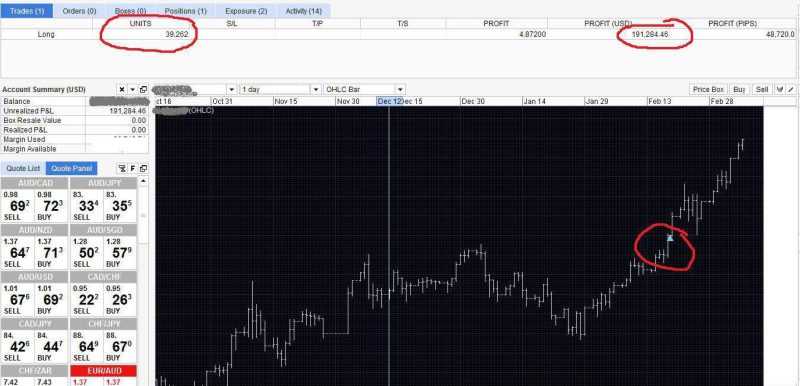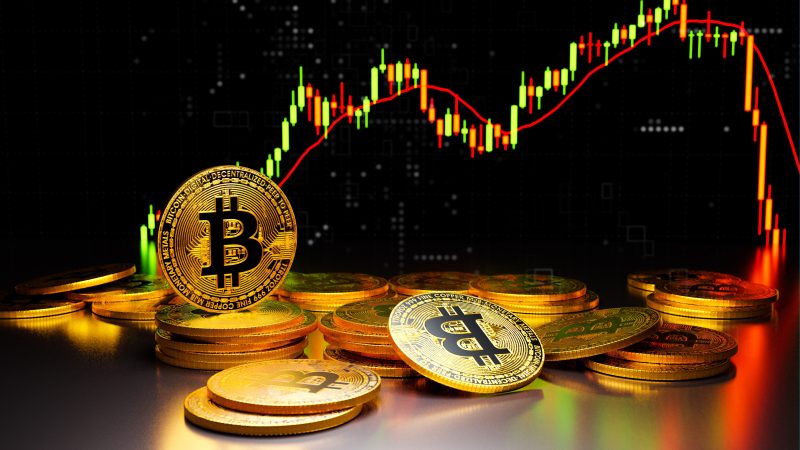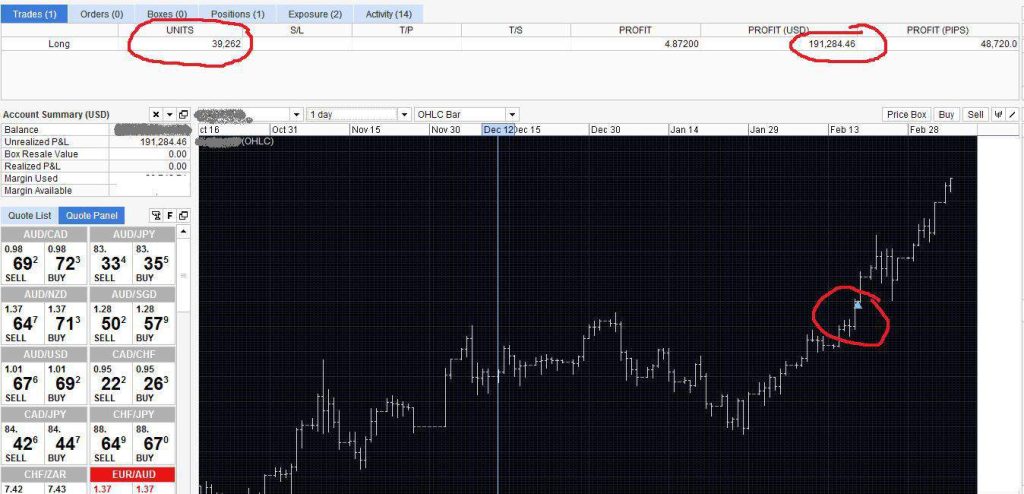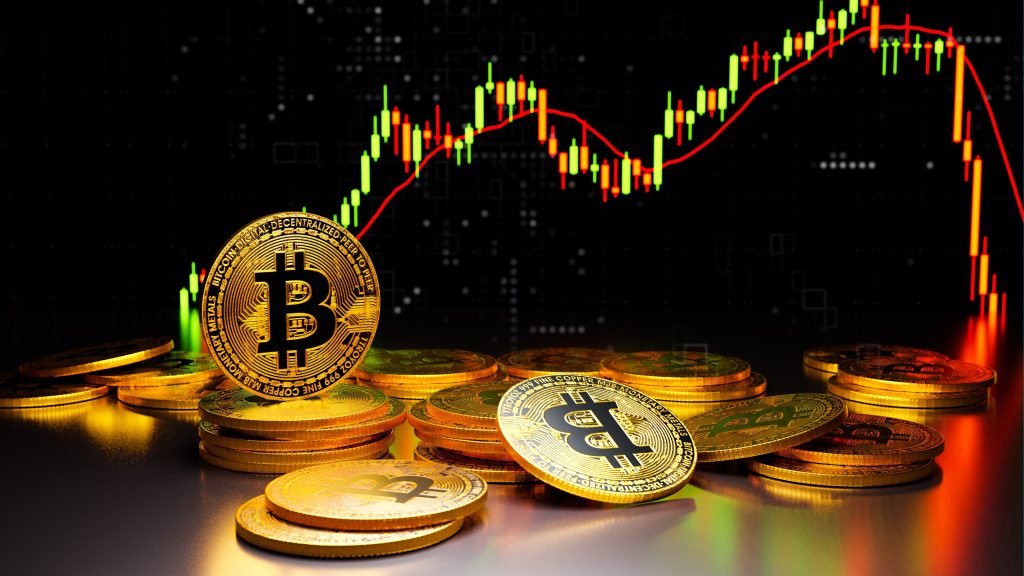Contents
- What is Dark Pool Trading?
- Understanding the Dark Pools
- Origins of Dark Pools
- Types of Dark Pools
- Why Use Dark Pools?
- Examples of Dark Pools?
- Advantages of Dark Pools
- Disadvantages of Dark Pools
- How Dark Pools Affect Non-Institutional Investors?
- Final Verdict
- FAQs
What is Dark Pool Trading?
A dark pool is a secret financial arena or marketplace where securities can be exchanged. Institutional investors can participate in dark pools without disclosing their identities until the transaction is complete and declared. Dark pools are a form of an alternative trading system (ATS) that allows some investors to execute huge orders and operate without disclosing their objectives to the public while looking for a trader. Public exchanges like NASDAQ and New York stock exchange owned dark pools.

Dark pools were developed as a result of the decentralization of online marketplaces, and they are often accessible through crossover systems or directly among market participants through secret contract clauses. Dark pools are normally not open to the public, however, they can be accessible informally by retail investors and professional traders through retail brokers in some situations.
Understanding the Dark Pools
When the Securities and Exchange Commission (SEC) enabled brokers to trade large blocks of stocks in the 1980s, dark pools formed. Automated trading, as well as a 2007 SEC regulation aimed at increasing competition and lowering transaction fees, has sparked a surge in the prevalence of dark pools. Because dark pools are generally hosted within a major corporation rather than a bank, they may charge lower fees than exchanges.
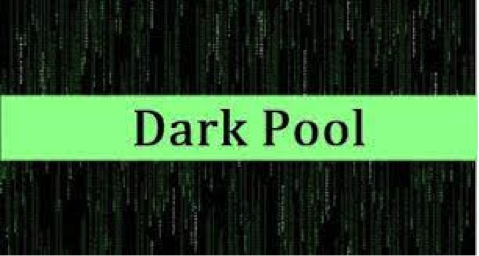
Bloomberg LP, for example, manages the Bloomberg Tradebook, which is certified by the Securities and Exchange Commission. Institutional investors leveraged dark pools for block trades consisting of multiple stocks at first. Dark pools, on the other hand, will be no longer reserved for huge orders. According to a Celent analysis, the average order size has decreased from 430 shareholdings in 2009 to about 200 shares in 2013. This is due to block orders going to dark pools.
Origin of Dark Pools
After a regulation modification by the SEC in 1979, dark pools appeared. Dealers desired cheaper execution costs and didn't want their competition to know what they were dealing with when they were trading it, and at what price. As a result, dark pools were established to keep pricing hidden from the public eye.
With the debut of Instinet's trading program, After Hours Cross, in 1986, the first was established. Allowed investors have the ability to place unknown orders that are filled after the market has closed. A year later, in 1987, ITG's POSIT was introduced as another platform.
SEC issued Regulation NMS in 2005, allowing automated forex trading on the New York Stock Exchange (NYSE).
Apart from these significant regulatory reforms, advancements in finance communication systems have pushed the development of new hybrid techniques like flash and algorithmic trading, which rely on speed, big order volumes, and liquidity to keep trading costs low. All of these were accessible in dark pools, but issues arose quickly. The 2010 flash collapse, which lasted 36 minutes and wiped away about $1,000,000,000,000 in market value, demonstrated the need for stronger regulation of high-frequency trading.
Types of Dark Pools
In, 2020 February. SEC signed over 50 dark pools, and there were just 3 types
Dealers and Brokers own dark pool
Large broker-dealers create dark pools for their clients, which may contain their own proprietary traders. Price discovery is present since these dark pools generate their unique values through order flow. Morgan Stanley's MS Pool and Credit Suisse's CrossFinder are examples of dark pools.
Exchange-Owned Dark Pool or Agency Broker dealers
This acts as an agent rather than a principal. There is just no price discovery since quotes were generated from markets, like the baseline of the National Best Bid and Offer. ITG Posit is an example of agency broker dark pools, whereas BATS Trading offers exchange-own dark pools.
Dark Pools of Electronic Market Makers
Dark pools are provided by individual entrepreneurs like Getco and Knight, who act as principals against their personal accounts. Their transaction pricing, like those of broker-dealer-owned dark pools, is not based on the NBBO, hence there is price discovery.
Why Use Dark Pools?
Initially, dark pools were primarily used by institutional investors that did not need public scrutiny to the positions they were entering, in event other players were ahead of them. An investor who establishes a stake in an asset before a block transaction is completed and reaps the rewards of the ensuing price movement is known as front running.
In today's investment environment, dark pools have grown significantly more frequently. Alternative trading systems and high-frequency trading (HFT) are 2 kinds of trade where no human activity is required. Computer systems will perform massive block trades in fractions of seconds, putting them ahead of other investors.
Because HFT floods public exchanges with trade volume, computers must devise strategies to divide bigger orders into smaller ones. It is possible to do this by conducting smaller deals on several exchanges rather than on a single financial exchange. It helps to prevent showing where the trader was performing these deals and minimizes front running.
Dark pools were created to assist smaller exchanges in meeting their liquidity needs. Many private financial exchanges sprung up, allowing traders who had huge orders but couldn't fill them on standard public exchanges to do so. Dark pools improve market efficiency by providing additional liquidity for certain assets by allowing them to be listed on exchanges.
Also read: Day Trading Computer Set Up
Examples of Dark Pool
Dark pools include a broker or dealer-controlled exchanges like Goldman Sachs' Sigma X, separately held platforms that allow secret dealing to their clients, and private commodity exchanges run by public exchanges like the New York Stock Exchange. A privately held market will have price discovery inside its own marketplaces, but a broker-operated dark pool will get its pricing from public exchanges.
Dark pools are typically seen as shady businesses by the common people due to their ominous moniker and lack of transparency. Dark pools are, in actuality, highly controlled by SEC. However, there is a legitimate fear that the public valuations of some assets are becoming increasingly incorrect or erroneous as a result of the large number of trades made on shadow markets. Concerns are however growing that marketplaces create good fuel for aggressive high-frequency trading (HFT) by high frequency traders.
Advantages of Dark Pools
Below are some of the advantages of dark pool:
Private exchanges
Dark pools enable a trade to take place away from the scrutiny of public marketplaces. Due to news reports and market psychology, public markets have a tendency to exaggerate or fail to respond. The pools make it easier to execute trades that cause value exaggeration or poor judgment.
Price depreciation is avoided
Dark pools, as previously indicated, allow huge deals to be executed with less concern about front running. Large trades can be split down into tiny transactions and completed through dark pools before the price of the asset diminishes.
It's comparable to attempting to make a large deal in a single platform when the price will most likely have dropped by the moment an order is fully completed.
Market efficiency and liquidity have improved
This advantage is dubious, given how rapidly liquidity on a private market can get used up. HFT and other algorithmic trading strategies, on the other hand, are thought to improve market performance since data gets valued into stocks fast. Dark pools can be said to boost market performance since they promote high-frequency trading (HFT) from high frequency traders
Disadvantages of Dark Pools
Anything that has advantages also has disadvantages. we would go through the disadvantages of dark pools.
Lack of Clarity
Dark pool trades give little to no confidential trading information. When compared to public exchanges, dark pools are looked down on because they are not properly regulated. People think that institutional traders on the dark pool are at a disadvantage.
Uneven Advantage
Dark pools have the advantage when it comes to high trading volume. When trading securities in high volume, most private exchanges can't compete with this advantage. A lot of improper trading activities goes take place in dark pools.
How Dark Pools Affect Non-Institutional Investors?
There is a lot of uncertainty as to how dark pools affect individual investors. The dark pool exchanges have been constantly expanding, and it is unclear how it affects stock trading of the individual trader.
The number of dark pool activities continues to grow. The quality of the market, market prices, and market integrity are the sole concerns of regulatory bodies. The SEC amended Regulatory ATS in 2018 with Rule 304, which requires the reporting of File ATS-N, which involves a series of dark pool information.
How Market Conditions Affect Your Trading
Final Verdict
Dark pools provide buy-side organizations like mutual funds and pension funds with pricing and cost advantages, with the hope that these benefits will be passed on to individual investors who hold these funds. Due to their lack of transparency, dark pools are prone to conflicts of interest by their owners and exploitative trading practices by HFT enterprises. As a result of the HFT incident, dark pools have come under heightened regulatory scrutiny, and the proposed “trade-at” rule could imperil their long-term viability.
FAQs
Is dark pool trading regulated by securities and exchange commissions?
All dark pools are regulated by the SEC. Regulators and traders who operate from home have brought up concerns about this regulation. This is as a result of the information which the SEC offers to a few traders that carry out a great percentage of dark pool trades. This information has been termed unfair because they can be used to execute trades upfront.
Why is dark pool trading legal?
In the year 1976, the Securities and Exchange Commission passed a regulation that was meant to legalize dark pool trading. This regulation permitted the start of dark pools from the 1980s. It also permitted investors to trade in big blocks of orders while staying away from the market impact and privacy.
Is dark pool trading good or bad?
Dark pools have their advantages and disadvantages as well. But a large number of players get good advantages from dark pools. The fact that transparency is absent in this form of trading is a great advantage to players. It is now their big selling point; however, it has brought some amount of disadvantages as well.
What is a dark pool in trading?
Dark pools are financial forums or exchanges that are owned by private individuals for the purpose of trading securities. Dark pools are also called alternative trading systems (ATS). It offers some opportunities to investors so they can make big orders and trade without public knowledge.
Do dark pool trades affect the price?
When these traders get to meet at the dark pool, they might not be in search of the best price on the stock market. These traders are looking for an efficient means of executing trades for limiting the impact of the market.





